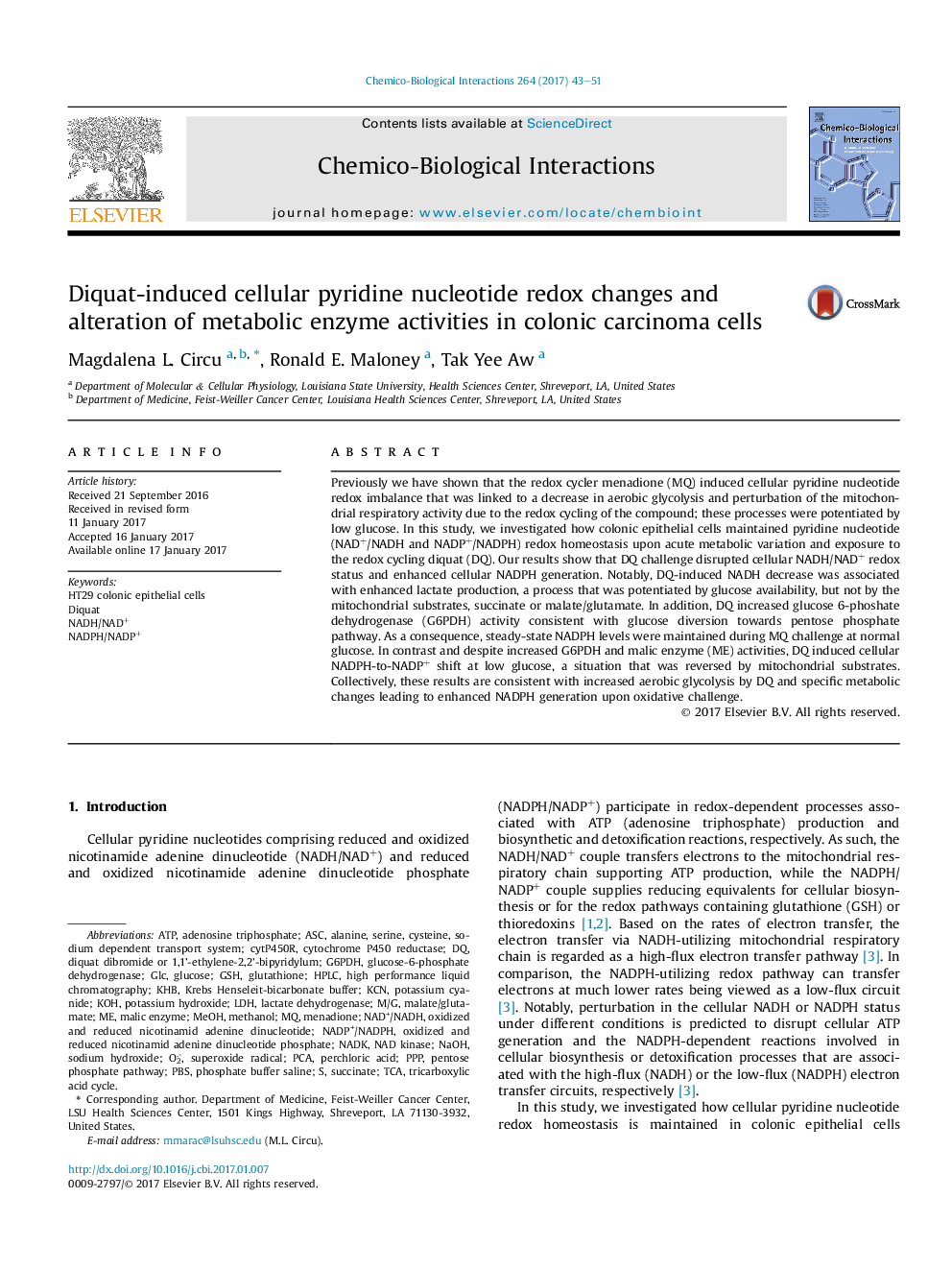| کد مقاله | کد نشریه | سال انتشار | مقاله انگلیسی | نسخه تمام متن |
|---|---|---|---|---|
| 5559443 | 1561578 | 2017 | 9 صفحه PDF | دانلود رایگان |
- Redox cycler diquat, DQ, exacerbates cellular pyridine nucleotide loss in colonic carcinoma cells.
- At low glucose, mitochondrial substrates prevent pyridine nucleotide redox imbalance.
- DQ promotes pyruvate-to-lactate production and enhances aerobic glycolysis.
- DQ redox cycling stimulates cellular NADPH generation via pentose phosphate pathway and malate catabolism.
- Colonic carcinoma cells employ metabolic alterations to alleviate oxidative stress.
Previously we have shown that the redox cycler menadione (MQ) induced cellular pyridine nucleotide redox imbalance that was linked to a decrease in aerobic glycolysis and perturbation of the mitochondrial respiratory activity due to the redox cycling of the compound; these processes were potentiated by low glucose. In this study, we investigated how colonic epithelial cells maintained pyridine nucleotide (NAD+/NADH and NADP+/NADPH) redox homeostasis upon acute metabolic variation and exposure to the redox cycling diquat (DQ). Our results show that DQ challenge disrupted cellular NADH/NAD+ redox status and enhanced cellular NADPH generation. Notably, DQ-induced NADH decrease was associated with enhanced lactate production, a process that was potentiated by glucose availability, but not by the mitochondrial substrates, succinate or malate/glutamate. In addition, DQ increased glucose 6-phoshate dehydrogenase (G6PDH) activity consistent with glucose diversion towards pentose phosphate pathway. As a consequence, steady-state NADPH levels were maintained during MQ challenge at normal glucose. In contrast and despite increased G6PDH and malic enzyme (ME) activities, DQ induced cellular NADPH-to-NADP+ shift at low glucose, a situation that was reversed by mitochondrial substrates. Collectively, these results are consistent with increased aerobic glycolysis by DQ and specific metabolic changes leading to enhanced NADPH generation upon oxidative challenge.
Journal: Chemico-Biological Interactions - Volume 264, 25 February 2017, Pages 43-51
